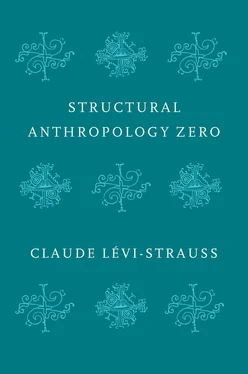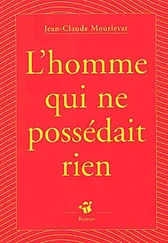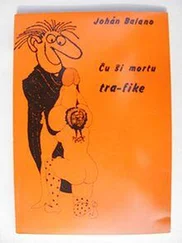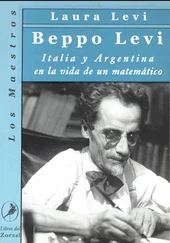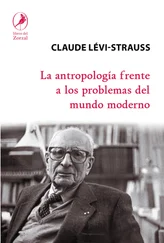But whatever the date settled on for his break from politics, Lévi-Strauss’s explanation remained the same. He consistently evoked his disillusionment following the realization that his political analyses always turned out to be inadequate and his predictions systematically belied by events. He did not have the political “nose” that enabled some to sense new social tendencies and allow their thinking to be shaped accordingly, permitting some scholars also to act sometimes as decision-makers and political players. Hence, at the very apex of his professional recognition and intellectual celebrity, he decidedly and even deliberately withdrew from the concerns of public life and the ideological battles of his day. An anthropologist specializing in vanished pre-Columbian civilizations, he was to dedicate himself to his teaching at the Collège de France and spend summers at his country refuge at Lignerolles, where he “binged on myths” and wrote the four volumes and two thousand pages of the Mythologiques , removed from the unrest of the 1960s. It was at this time that he sketched the features of what was to become his public persona from the 1980s until his death.
The hypothesis of a fundamental and belatedly discovered mismatch between his personal temperament and the demands of political action should not be entirely dismissed, but it cannot account for the early 1950s about-face. We should note, first of all, that the disillusionment occurred at a specific time and place, namely France of the Fourth Republic. The anthropologist who had dreamt of renewal and tabula rasa was back in his home country thirteen years after his first trip to Brazil in early 1935; in the intervening years he had been back only for short periods, spending a total of ten of the previous thirteen years abroad. During this period, his status and identity had undergone major changes: an ambassador of French thought in Brazil (a university professor while he was not yet thirty years old), then a young and rising anthropologist upon his return to France, he is drafted in 1939 and experiences the “disorderly retreat” of the French army over several months, “from one billet to another” and from “cattle-trucks” to “sheep-folds”; 35his Jewish identity, which he thought he could discount, was thrown back in his face by the law of October 13, 1940, and he became “potential fodder for the concentration camp,” 36forced to flee into exile; having reached New York after a gruelling crossing, he gradually made his way in the world of American anthropology and forged local intellectual networks; he played an active role within the École Libre des Hautes Études and was appointed cultural attaché immediately after the war. But, upon his return, he found a country that did not want to see itself as having been defeated and that proved more interested in rewriting its history. Former institutional and intellectual divisions resurfaced (he experienced his own failures at the Collège de France as a victory of the “ancients” over the “moderns”), as did the same characters. It was the physical anthropologist Henri Vallois, a specialist in racial taxonomy appointed by the Vichy government in 1943 to replace Paul Rivet at the helm of the Musée de l’Homme, who was elected director of the institution in 1950, over Jacques Soustelle, a renowned anthropologist and a figure of Free France. As a result, Lévi-Strauss resigned from the position as assistant director of the museum which he had held since his return from the United States. This diffuse yet profound unease with regard to France is revealed in many passages of the early chapters of Tristes Tropiques – “confessions” he wrote over the course of a few months, in a state of “rage” and “irritation” that he would “never have dared publish if [he] had been competing for a university position.” 37
The narrow-mindedness condemned by Lévi-Strauss was perfectly illustrated in the French refusal to open the national community “on the basis of equal rights” to the “twenty five million Muslim citizens” from the colonies, a timorous isolationism that contrasted with the audacity of the United States a century earlier, when it opened its doors to mass immigration by poor and uneducated Europeans – a successful gamble “which saved America from remaining an insignificant province of the Anglo-Saxon world.” 38This comparison between the two national destinies figures in the very last chapter of Tristes Tropiques , written in early 1955, as the Union Française – the political organization of the French colonial empire from 1946 on – was falling apart and the Algerian war was just beginning. For Lévi-Strauss, this debacle was due to the hypocrisy of the system of representation within the Union Française, the so-called double college which, despite a theoretically egalitarian Constitution (since “indigenous” status had been abolished and all Union members had the status of citizens), established a highly unequal system of representation between metropolitan French and colonial populations. This is the only allusion in Tristes Tropiques to an issue that was both at the center of French current events and the essential dynamic of the international context at the time of its writing – i.e. decolonization – which has been singled out as conspicuously absent from Lévi-Strauss’s anthropology. Thus, neither at the international nor at the national scale had the post-war period kept its promise of a new deal.
At the end of “The Theory of Power in a Primitive Society,” Lévi-Strauss cited the very important memo of November 8, 1941, on the “new indigenous policy in French equatorial Africa” by Governor-General Félix Éboué, which he had read in English translation. In it, Éboué recommended a policy of gradual and realistic association which took existing social structures into account, respected traditions and relied on traditional leaders – and it was with regard to the latter point that Lévi-Strauss mentioned it. This memo was to serve as the starting point of the Brazzaville Conference (January 30 to February 8, 1944), which led to the creation of the Union Française. The latter was widely inspired, at least at the level of principle, by the federalist ideal that Lévi-Strauss supported, having seen nationalism as a scourge ever since his early socialist years. In February 1943, writing for a few interlocutors at the US State Department, he argued: “The disintegration of national sovereignty must start from within through a process of federalism, on the one hand, and the creation of economic bodies, on the other, that will undermine the differences between national groups.” 39But by the mid-1950s that ideal was already anachronistic. “Federalism” had become an accusation leveled by the nationalist right and the colonial camp, in particular against Pierre Mendès-France (whom Lévi-Strauss held in high esteem and with whom he met as he was writing Tristes Tropiques ), and even against Jacques Soustelle, himself an anthropologist by training and a socialist in his youth, who had been appointed Governor General of Algeria in 1955. Independentist leaders, for their part, saw federalism as nothing but an empty catchword, as demonstrated by the hypocrisies of the Union Française – nothing but a way of surreptitiously perpetuating French rule. The principle of nationhood thus resurfaced everywhere, and Lévi-Strauss understood that he had to accept defeat in the face of what he later termed the “powerful engine” against which “no dominating state, not even a federating state, can stand up to for long.” However, as he would immediately add, this was “nothing to celebrate” – “national sovereignty is not a good in itself; it all depends on what use is made of it.” 40In this respect, the early 1950s was indeed a moment of disillusionment for Lévi-Strauss, and, when he incorporated the text of “The Theory of Power” into Tristes Tropiques , he removed the reference to Félix Eboué and his comments on the necessity of dialogue between anthropologists and colonial administrators.
Читать дальше
